Counting skills Easy Addition Worksheets for Ages 5-8
12 filtered results
-
From - To
Introducing Counting Skills Easy Addition Worksheets for Ages 5-8! Perfectly designed for young learners, these engaging and educational worksheets help kids develop essential addition skills while making learning fun. With vibrant visuals and simple problems, children will be excited to solve each equation and enhance their counting abilities. The exercises are thoughtfully crafted to suit early grade students, building a solid arithmetic foundation. Ideal for both classroom and home use, these worksheets empower kids to confidently tackle math challenges, fostering a love for learning. Give your child the advantage they deserve with our easy-to-use addition worksheets!
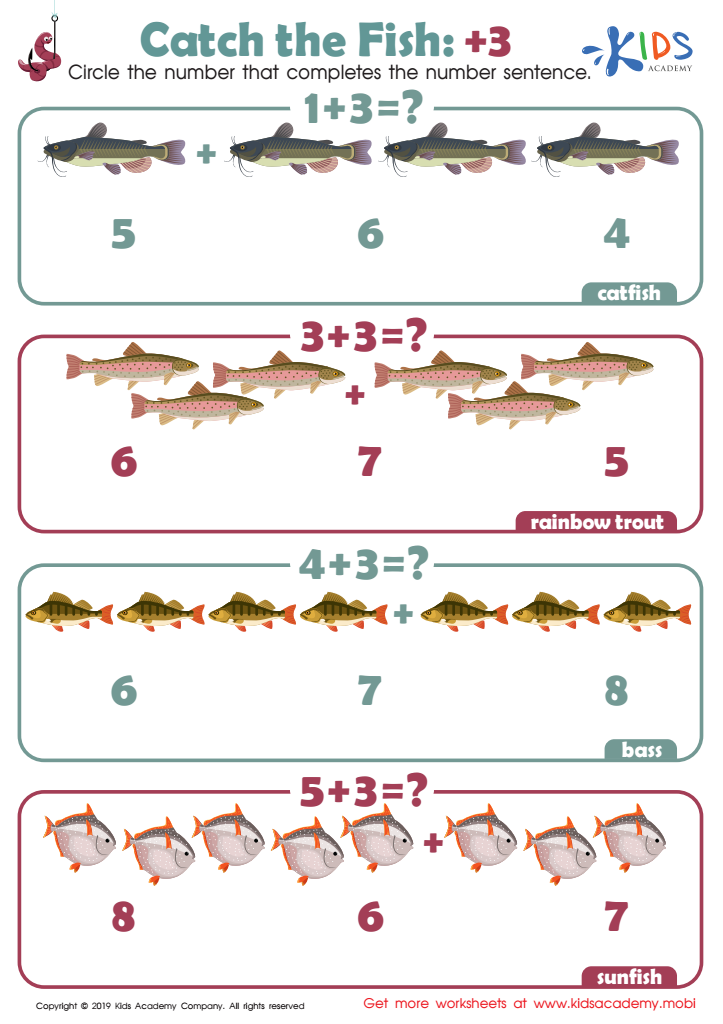

Catch the Fish: +3 Worksheet
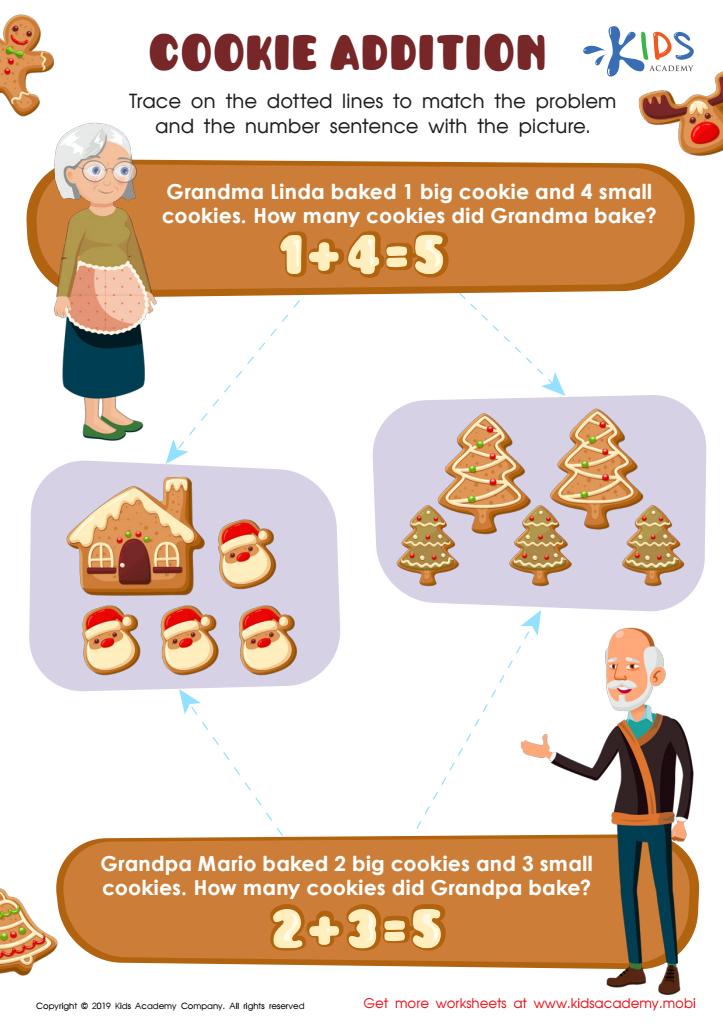

Cookie Addition Worksheet
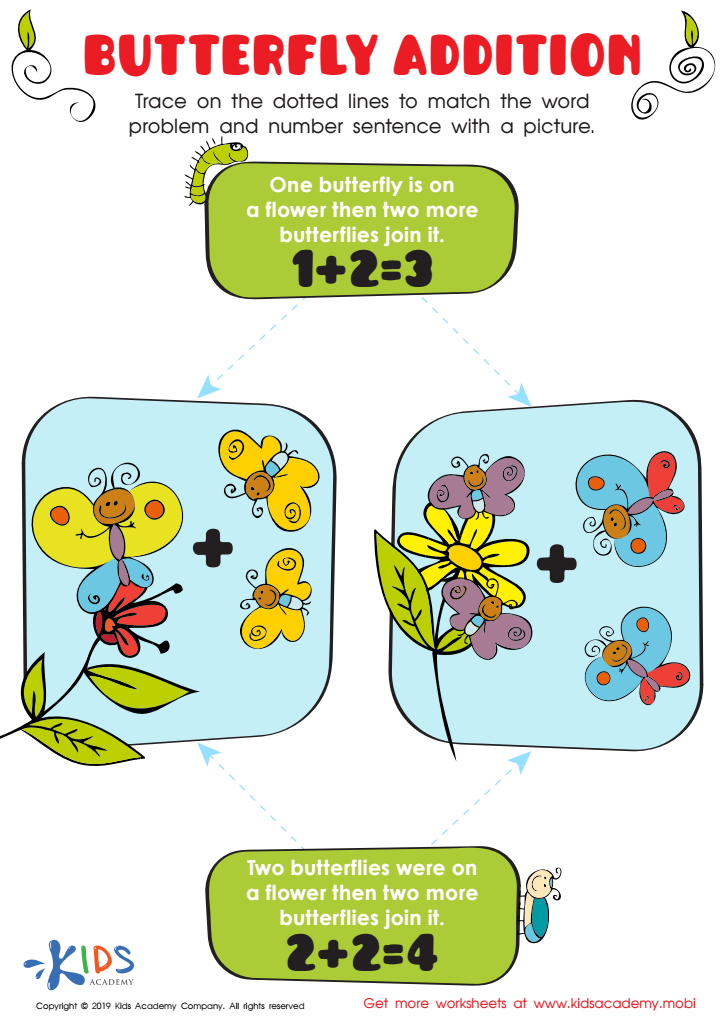

Butterfly Addition Worksheet


Counting Seedlings Worksheet
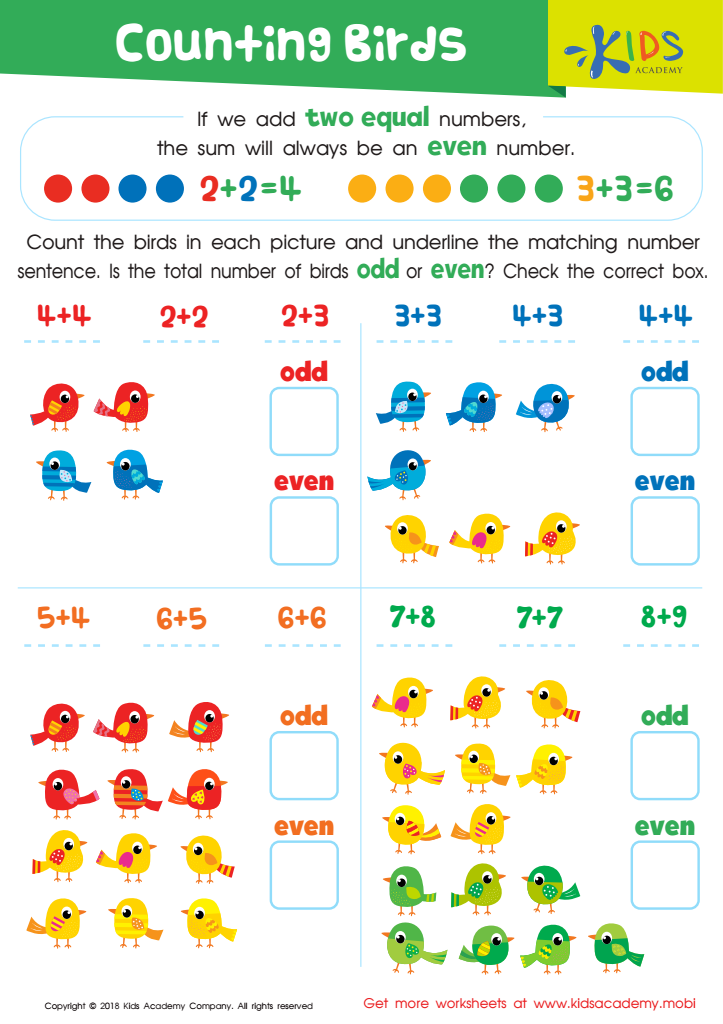

Counting Birds Worksheet
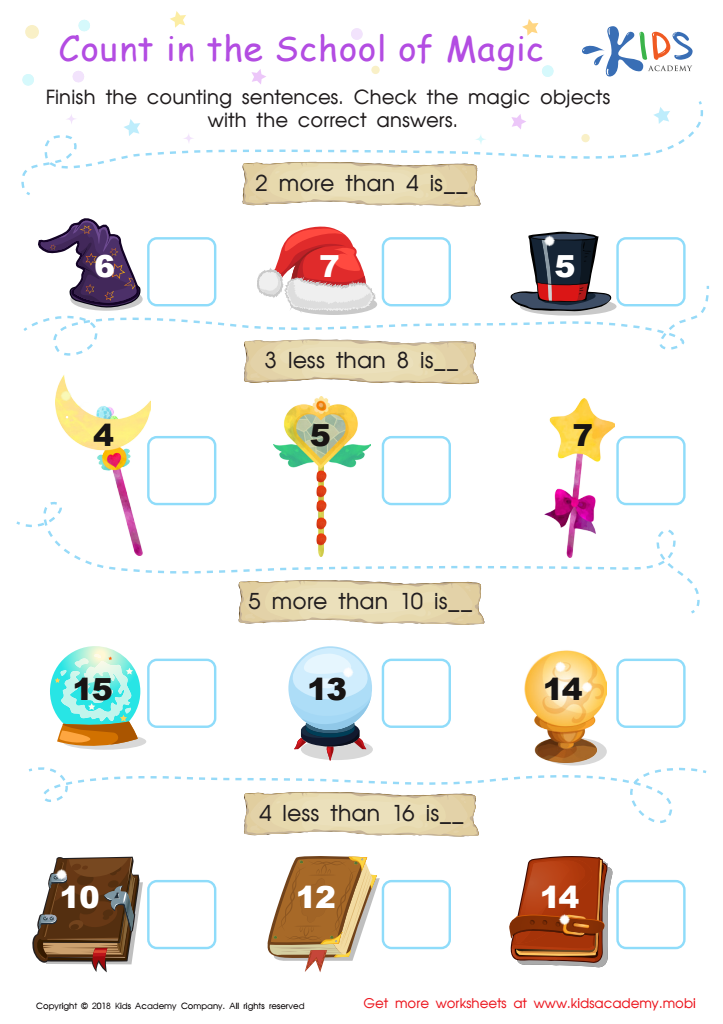

Count in the School of Magic Worksheet
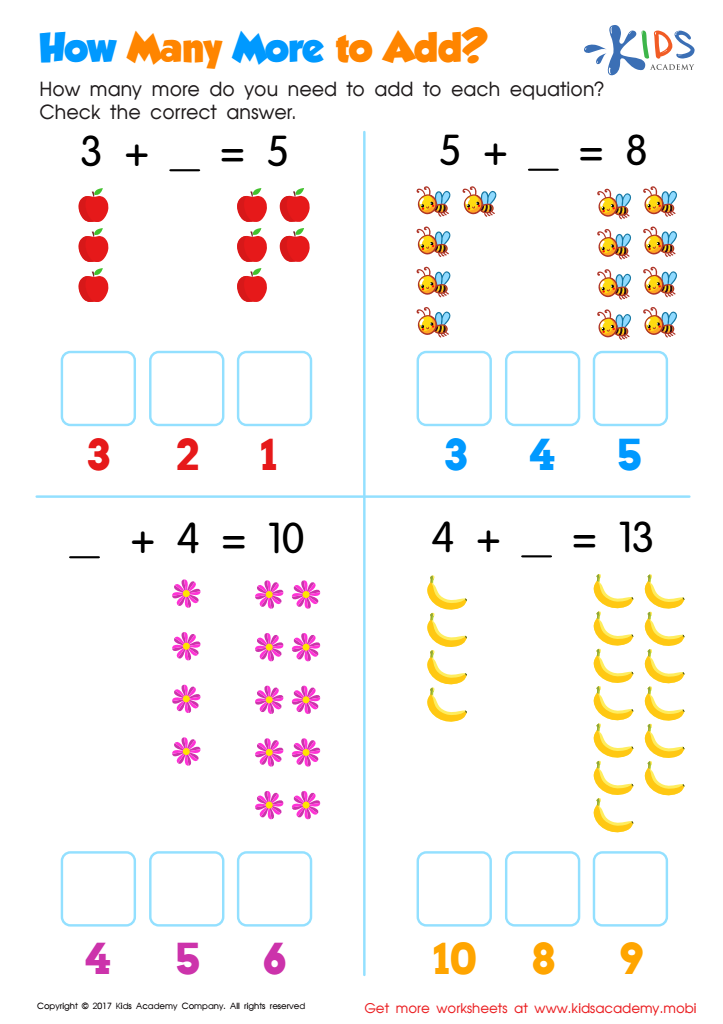

How Many More to Add Worksheet
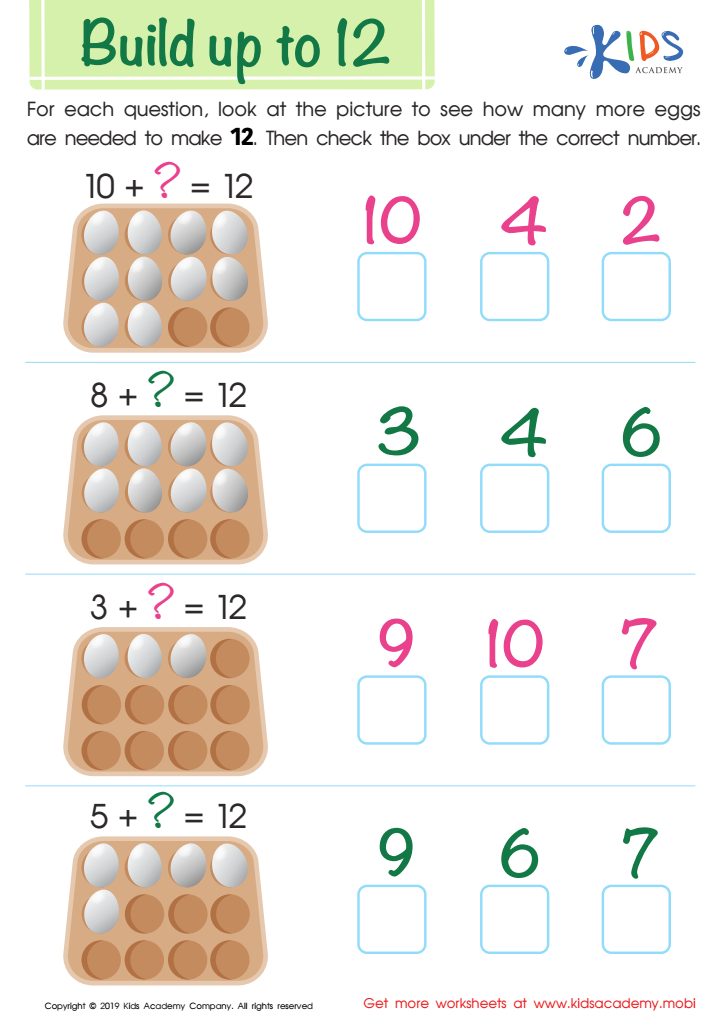

Build up to 12 Worksheet
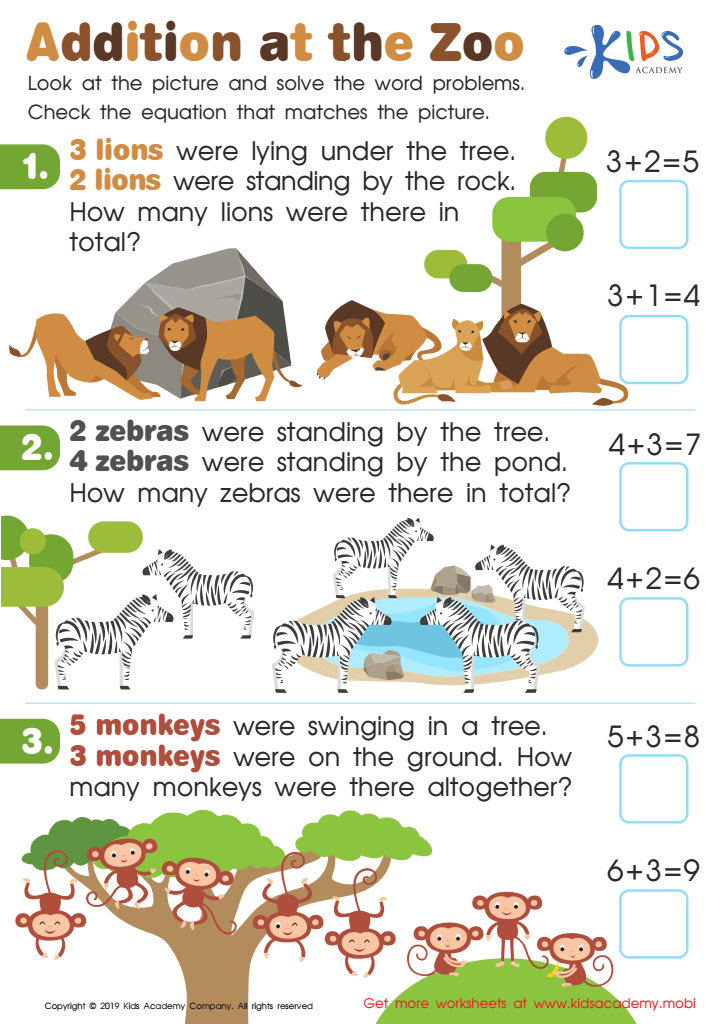

Addition at the Zoo Worksheet
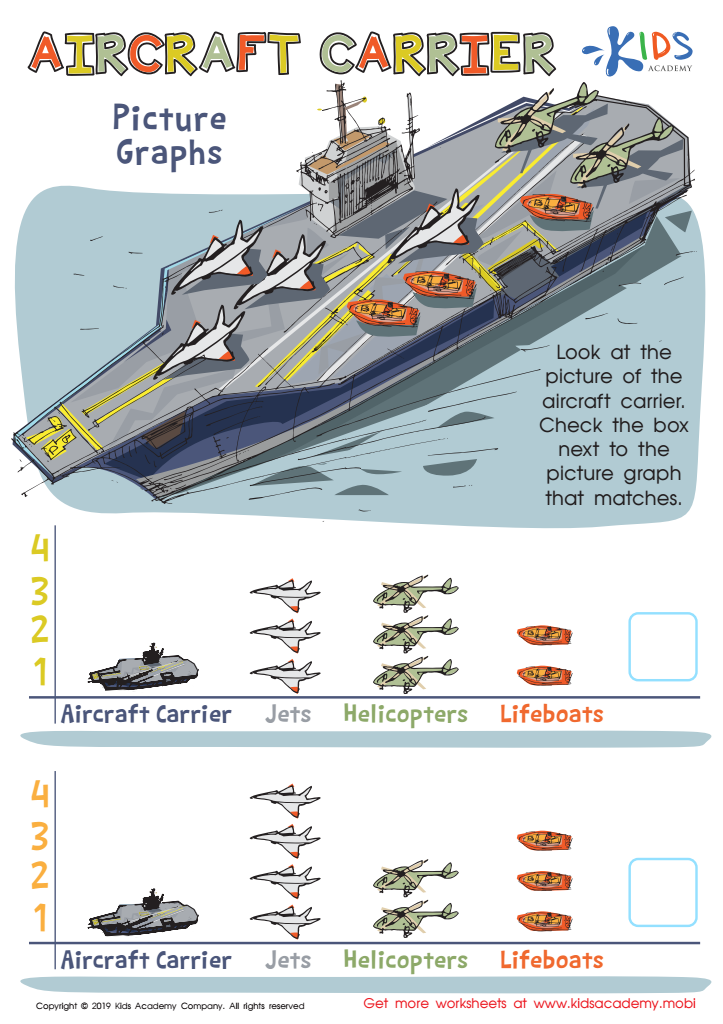

Aircraft Carrier Picture Graphs Worksheet
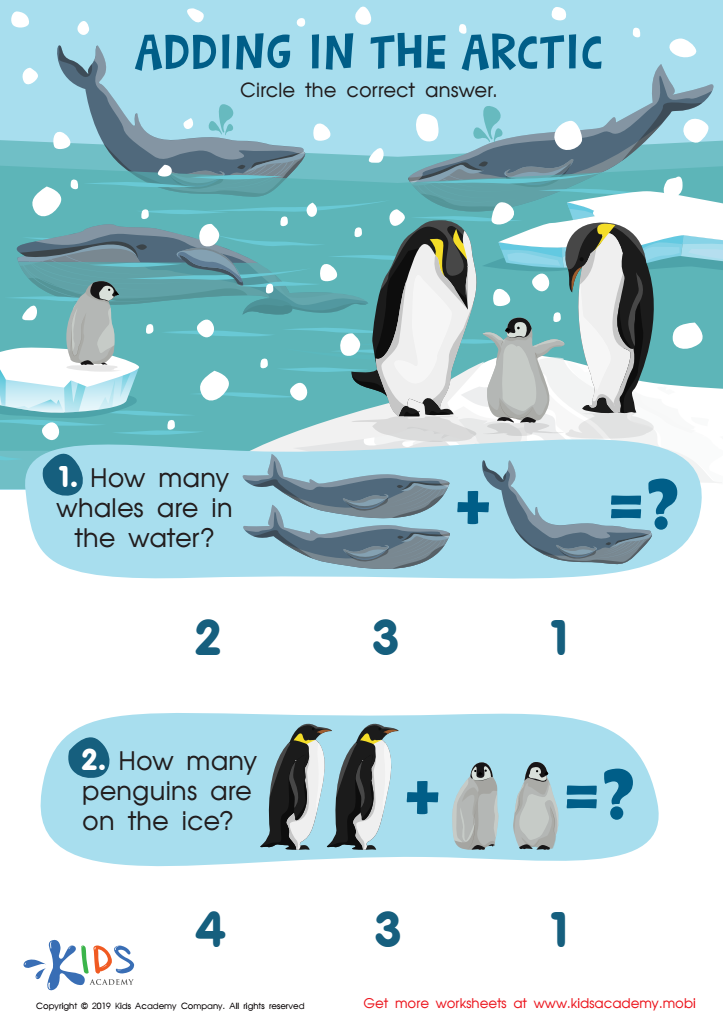

Adding in the Arctic Worksheet
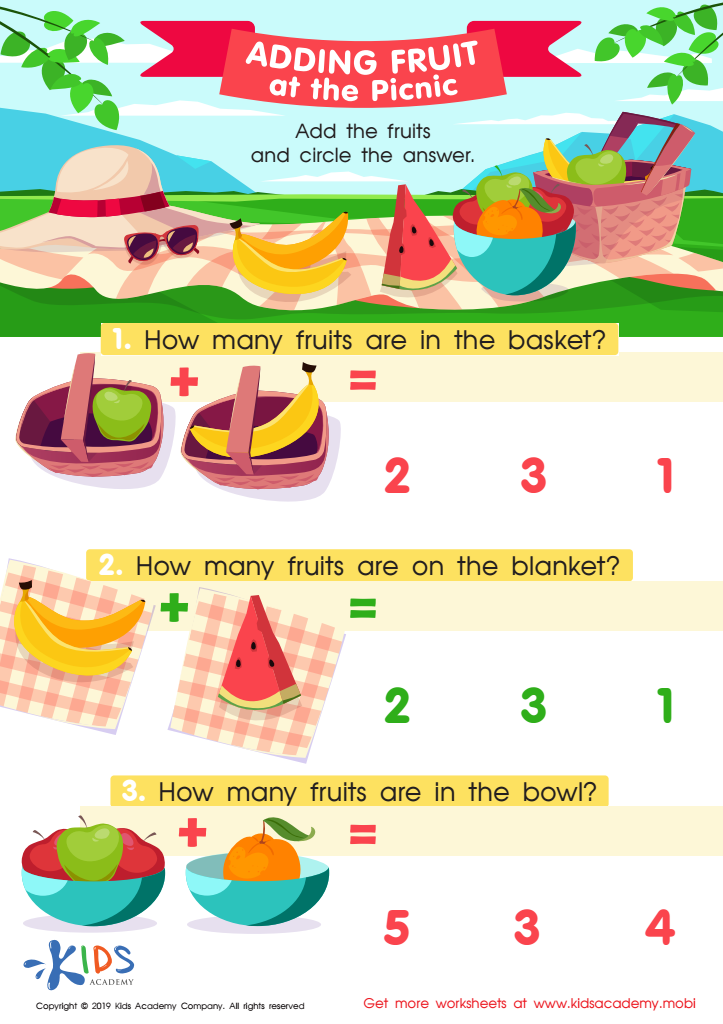

Adding Fruit at the Picnic Worksheet
Counting skills and easy addition are crucial foundational elements in early childhood education, especially for children ages 5 to 8. Firstly, mastering these skills enables young learners to build numerical fluency, which means they can understand and work flexibly with numbers. This foundational understanding is essential for tackling more complex math concepts that they will encounter in later years, such as multiplication, division, and problem-solving.
Improving counting and basic addition also enhances cognitive skills like memory, attention to detail, and logical thinking. As children practice counting, they learn to recognize patterns and sequences, which are beneficial in subjects beyond math, including reading and science.
Moreover, early math skills are closely linked to future academic success. Studies show children who enter first grade with strong numerical skills are more likely to perform well not just in math, but across other academic areas too. Hence, giving them a strong start sets them up for an overall better educational experience.
From a social-emotional standpoint, achieving proficiency in counting and addition fosters confidence and a sense of accomplishment in young learners. These early successes build a positive attitude towards learning and continuous intellectual curiosity. Therefore, parents and teachers should prioritize these skills to support holistic development in children.
 Assign to My Students
Assign to My Students






















